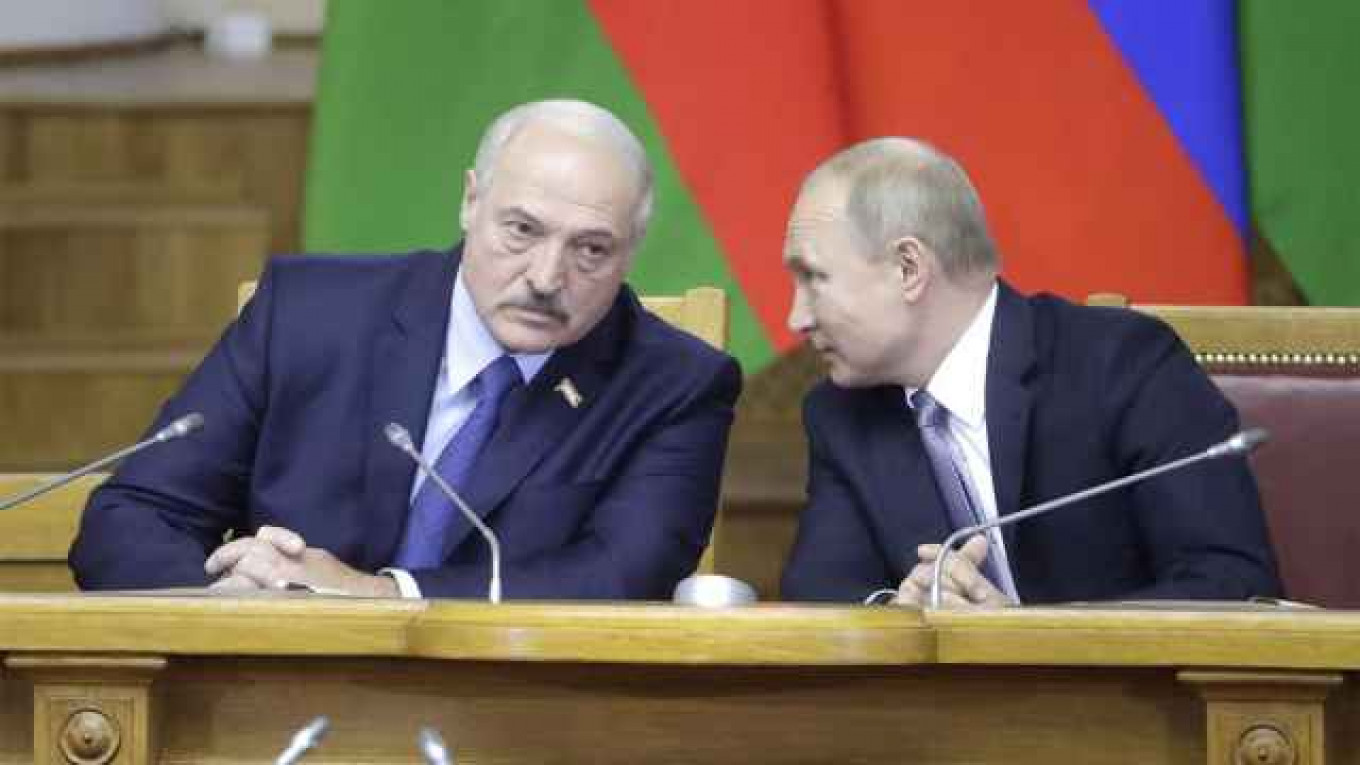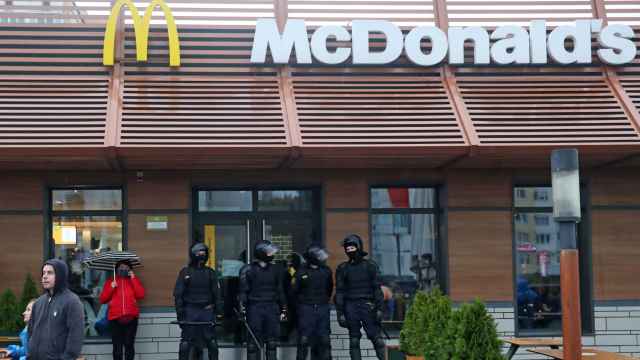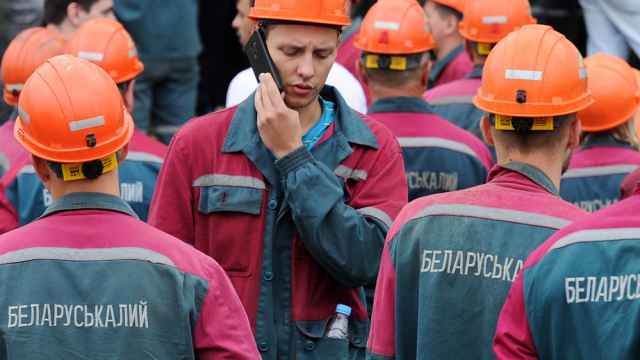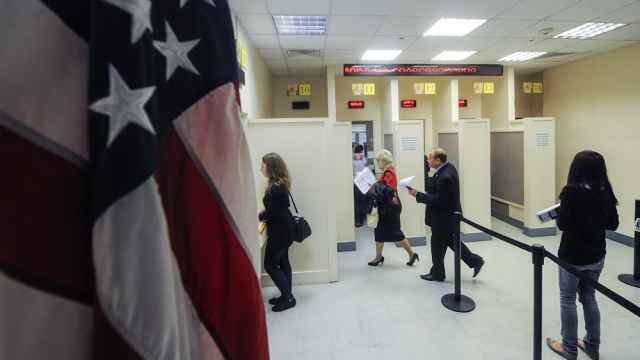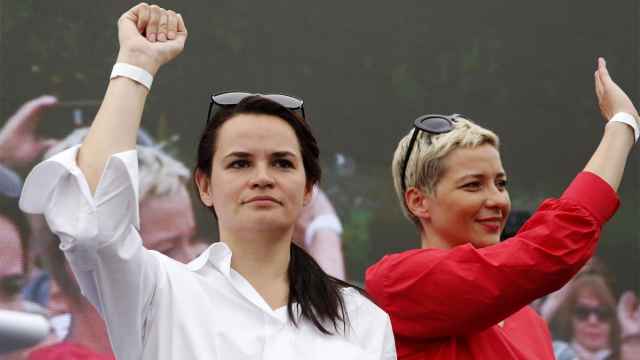The United States and the EU hit Belarus officials with long-awaited sanctions over the country's political crisis on Friday, drawing an angry response from Minsk and its ally Moscow.
After more than six weeks of diplomatic efforts, EU leaders finally persuaded Cyprus to drop its block on sanctions at a summit in Brussels, opening the way for some 40 members of President Alexander Lukashenko's regime to be listed.
The US Treasury also moved against eight Belarus officials with punitive sanctions Friday for what it called their roles in "fraudulent" elections and a subsequent violent crackdown on protesters.
The sanctions targeted Interior Minister Yury Karayev and Deputy Minister Alexander Barsukov, public security officials, and election commission officials.
"The Belarusian people's democratic aspirations to choose their own leaders and peacefully exercise their rights have been met with violence and oppression from Belarusian officials," said Treasury Secretary Steven Mnuchin in a statement.
The EU targets for its travel bans and asset freezes are officials it blames for rigging the August 9 election that returned Lukashenko to power and for orchestrating the crackdown.
Lukashenko himself is not on the list, but it does include Karayev, who the EU says was responsible for the "repression and intimidation campaign" against protesters, and Central Election Commission chief Lidia Yermoshina.
The EU's official listing blames Yermoshina for the "falsification of election results" in the poll, which Western powers have dismissed as rigged and illegitimate.
Minsk swiftly announced tit-for-tat "counter sanctions" against the EU, though it was not clear what form these would take or what they would target.
"In connection with visa sanctions adopted by the EU against a number of Belarusian officials, the Belarusian side from today is introducing a list of reciprocal sanctions," Belarus's foreign ministry said in a statement.
The ministry said that by imposing sanctions the EU had "alienated" the country, which western commentators have dubbed "Europe's last dictatorship" under Lukashenko's strongman rule.
Minsk said it would not disclose which European officials were being targeted, but threatened "even more serious consequences" if the EU expands its restrictions.
'Manifestation of Weakness'
Protesters have taken to the streets of Belarusian cities since Lukashenko claimed a sixth term with 80 percent of the vote.
Riot police have detained thousands of protesters, many of whom alleged torture and abuse in custody, prompting international condemnation.
Russia has backed its longstanding ally Lukashenko in the crisis, offering financial backing and hinting at military support if events turn against him.
The Kremlin slammed the new EU sanctions, which follow similar measures from other Western governments including Britain and Canada.
"In general, we are very, very negative about the sanctions policy... this is more a manifestation of weakness than strength," Kremlin spokesman Dmitry Peskov told reporters.
The EU had promised sanctions on Belarus since August, but approval was held up by Cyprus, which refused to give its backing until the bloc took more action on Turkey drilling for gas in its territorial waters.
The deadlock was finally broken early Friday after seven hours of summit haggling, with the 27 leaders agreeing a formal statement threatening Turkey with sanctions if it does not halt its activities.
EU foreign policy chief Josep Borrell said the sanctions were a "strong message of support" to supporters of democracy in Belarus.
"We hope these sanctions will encourage the Belarusian leadership to refrain from further violence, to free all the unlawfully detained people... and engage in a genuine and inclusive dialogue with the opposition," Borrell said.
Lukashenko Spared
Lukashenko is the most glaring omission from the sanctions list.
Unlike Britain and Canada, which listed the veteran leader in their measures, the EU decided to spare him in the hope of persuading him to engage in talks with the opposition aimed at ending the crisis.
German Chancellor Angela Merkel will host the main Belarus opposition leader Svetlana Tikhanovskaya for talks on Tuesday.
Tikhanovskaya, who claimed victory in the Aug. 9 election, fled Belarus soon afterwards and has sought to keep up international pressure on the Minsk regime while protests continue on the streets.
A Message from The Moscow Times:
Dear readers,
We are facing unprecedented challenges. Russia's Prosecutor General's Office has designated The Moscow Times as an "undesirable" organization, criminalizing our work and putting our staff at risk of prosecution. This follows our earlier unjust labeling as a "foreign agent."
These actions are direct attempts to silence independent journalism in Russia. The authorities claim our work "discredits the decisions of the Russian leadership." We see things differently: we strive to provide accurate, unbiased reporting on Russia.
We, the journalists of The Moscow Times, refuse to be silenced. But to continue our work, we need your help.
Your support, no matter how small, makes a world of difference. If you can, please support us monthly starting from just $2. It's quick to set up, and every contribution makes a significant impact.
By supporting The Moscow Times, you're defending open, independent journalism in the face of repression. Thank you for standing with us.
Remind me later.


